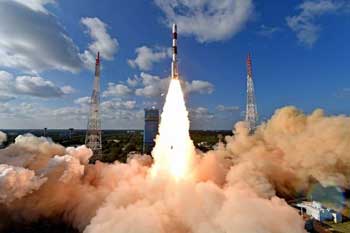INVC NEWS
In the first week of June 6, 2020 / June, a “Global Stakeholder Dialogue” meeting was held to discuss legislative issues ad challenges in internet governance proposed by the ISOC and Internet  Governance Forum of the United Nations. This dialogue was moderated by Tran Kochhar, and Communication Officer Maria Tazi. The meeting was attended by worldwide stakeholders, experts, consultants, advisers and delegates including, Dr. DP Sharma, Mark Karvel, Roberto Zamberna, David, Yasmin Old Mammar, João Stevens from 80 countries and all continents. They participated in the online dialogue, making the discussion lively, meaningful, and diverse. The dialogue discussed in detail how to make Internet governance a global standard and to shape the United Nations agenda on global digital cooperation. In all the four sessions’ important qualitative and quantitative suggestions data was collected which would be analyzed and a detailed report would be prepared.
Governance Forum of the United Nations. This dialogue was moderated by Tran Kochhar, and Communication Officer Maria Tazi. The meeting was attended by worldwide stakeholders, experts, consultants, advisers and delegates including, Dr. DP Sharma, Mark Karvel, Roberto Zamberna, David, Yasmin Old Mammar, João Stevens from 80 countries and all continents. They participated in the online dialogue, making the discussion lively, meaningful, and diverse. The dialogue discussed in detail how to make Internet governance a global standard and to shape the United Nations agenda on global digital cooperation. In all the four sessions’ important qualitative and quantitative suggestions data was collected which would be analyzed and a detailed report would be prepared.
Speaking at the joint online meeting of the United Nations and IGF on Internet Governance, Dr. DP Sharma, an internationally renowned professor and information technology expert from Jaipur said that today the load on the Internet in the world has increased so unexpectedly that everything going online under the new paradigm shift that no one had imagined before. He said that in the changed circumstances due to the coronavirus, the meeting, education, administration, governance, communication, and management, everything has come to the Internet. In such a state, the United Nations should intervene to make the Internet more secure, sound, and democratic. Because it has often been seen that governments of many countries, who are wearing the cloak of pseudo-democracy, lock the internet whenever they want to protect their interests. It has to bear the brunt of those whose work, business, or professional activities are conducted through the Internet. In these stages, their professional rights, human rights, and general communication rights are completely disrupted. As of now, there is no international law to govern (control / operate) the Internet. All the laws that are going on to govern the Internet in the world are either semi-built or partially framed and or not framed at all. At the international level, there is no single law under which governments or Internet service provider companies can be compelled to prevent the Internet from protecting their interests. Here, Dr. Sharma while referring to his own theory “Conflict of Interest and Conflict of Rights” said that in such circumstances these two theories collide on their own and give rise to a new controversy. Today there is a strong need to find a solution to this, there is also a need to make a clear explanation between the two. If there is a very emergency, then only the law can disrupt the Internet to control the situation of the law and order. But for those people who are associated with business or profession internationally and whose entire work is done through the internet, how to make an uninterrupted and secure tunnel of the Internet so that they can operate their work smoothly, free from lockdown. It is required to enact an international level law. Dr. Sharma said that today a person from one country commits a crime in another country, and hides by going to a third country. Under these circumstances, which law should be used to arrest the criminals for legal action? Everything is required to be balanced on a global scale. For all the countries, even today it remains a complicated issue of law and technology in a hung state. Dr. Sharma said that recently an Internet app named ‘Arogya’ has been run in India for the tracing of Corona patients, which is run by the Central Government. This app is working effectively with very good thinking to know about the location of a person and the condition of his corona global epidemic. But this app also violates the privacy of a person, his movement, and the law of privacy itself. If such an app was applicable in the United States, it would have been legally illegal under the Privacy Act. In these circumstances, the role of the United Nations and ISOC is further enhanced by how it enacts an international level of Internet governance law that is acceptable to all and can protect the interests of all in a democratic way. Along with their responsibilities, clear-cut demarcation should be done today
In this entire dialogue, the proposed three models of Internet governance were discussed at the international level so that its flaws could be brought to a democratic and universally acceptable position and passed by the United Nations as a charter or convention. These three models are 1) Digital Common Architecture, 2) Distributed Co-Governance Architecture and 3) Internet Governance Forum Plus. It is known that Dr. Sharma has been associated with the International Labor Organization of the United Nations as an International Expat Consultant (IT). Speaking on the three architectures, Dr. Sharma said that to make these models more democratic and effective, there is a need to change their structure.
He said that people who know technology have limited knowledge about the law but people who are experts in law have limited technical knowledge. Therefore, there is a need to communicate internationally and in a more democratic manner for effective finalization of these models. If experts of technical, law and governance work together and revisit these models, then this convention of internet governance can be made more comprehensive and effective. He said above the distributed governance model that along with this model we also need to convert the centralized and decentralized model to reduce excessive dependence on one model.
The condition of governance is not the same in every country in the world. If a model is adopted in these circumstances, then its complex structure and components may obstruct it in the way of becoming more effective. Speaking on the futuristic internet governance in dialogue, Dr. Sharma said that digital cooperation, international trust, and openness of dialogue is not only a requirement of internet governance but also internet security, personal privacy, global crime prevention, in all three models of internet governance. There is also a need to effectively include health and privacy issues. Dr. Sharma said that the future crime will not be conducted on the street with guns and stones but on the internet through mouse and keyboard, which the existing laws cannot effectively stop in any way.
It may be noted that in 2003 and 2005, the United Nations organized the World Summit on Information Society (WSIS). One of the most important outcomes of this historic summit was the creation of the Internet Governance Forum, or “IGF”. Once a year, experts and stakeholders gather for the global IGF. The impact of Corona was clearly visible in this international meeting held in the first week of June, which led to the meeting being held on-line. The United Nations constituted the IGF to allow people to speak freely on a common footing. It was done so that the voice, the suggestions could be conveyed to the apex body of the United Nations. The IGF acts as an advisory body for the United Nations as a strong link. The IGF also plays an essential and advisory role in decisions taken to make the Internet more democratic and secure. For over a decade, the Internet Society has developed multi-stakeholder Internet governance processes around the world by providing funding to the Internet of Global Internet Governance Forum (IGF) as well as several national and regional initiatives (NRIs), and educational institutions. Has also been supportive. The program serves to organize IGF programs at the local, national, regional, and global levels, as well as to distribute Internet governance worldwide.
In the coming October 2020, hundreds of ordinary citizens will also hold collective discussions on the basic stakes of digitization, so that general public opinion can be heard in a Democratic (democratic) manner, and then the United Nations manages to enact a law with experts Which allows all countries to accept all citizens to govern the Internet. This civic dialogue will help in collecting and analyzing quantitative and qualitative data at global, national and regional levels and distributed to experts. It will clarify the needs and views of citizens around the world and provide smart new insights. Topics in this dialogue will include “Internet and I”, “Creating a strong digital identity”, “Creating an inclusive digital public sphere” and “Controlling artificial intelligence” and more.












